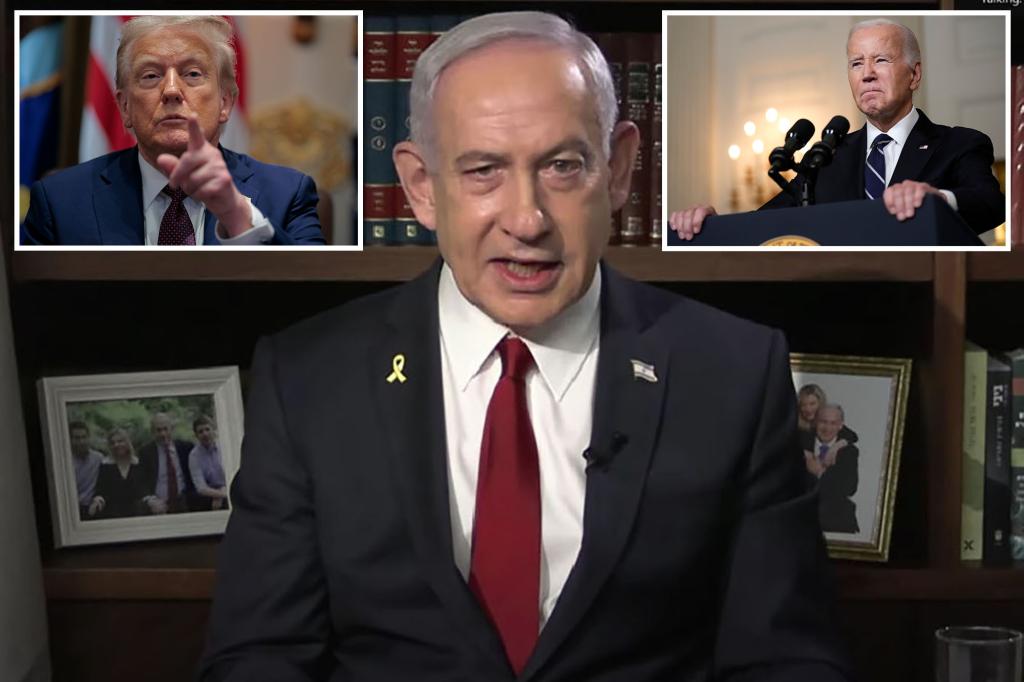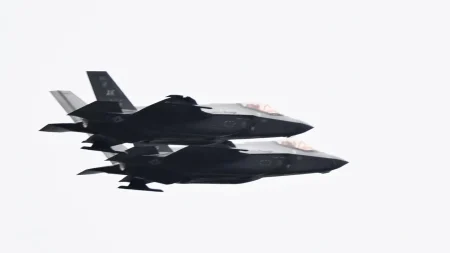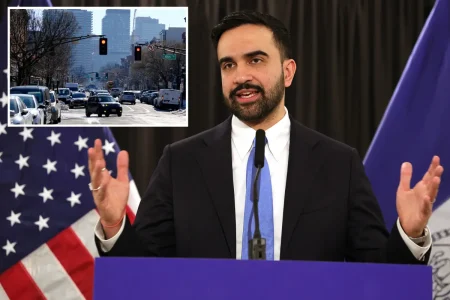Netanyahu’s View on Hamas Attack and Trump’s Potential Influence
In a candid interview on the “PBD Podcast” hosted by Patrick Bet-David, Israeli Prime Minister Benjamin Netanyahu shared his belief that the devastating October 7 Hamas attack might not have occurred had Donald Trump been in the White House. When directly asked if Hamas would have been too fearful to launch such an assault under Trump’s administration, Netanyahu responded, “Probably not,” though he acknowledged the unpredictability of such “maniacs.” This statement reveals Netanyahu’s perspective on how different leadership in Washington might have altered the security landscape in the Middle East. The Prime Minister specifically pointed to Iran’s role as the “patron” behind Hamas, suggesting that Iran “would have been more careful” under Trump’s leadership, implying that the former president’s approach to the region might have served as a stronger deterrent against aggression toward Israel.
Netanyahu’s comments came at a significant moment in U.S.-Middle East relations, as Trump’s special envoy Steve Witkoff announced plans for a major White House meeting to discuss a “comprehensive plan” for post-war Gaza. This meeting, according to Witkoff, would showcase a “robust” and “well-meaning” approach that reflects “President Trump’s humanitarian motives.” The timing of Netanyahu’s remarks and this announced meeting suggests an alignment between the Israeli government and the Trump administration on how to address the ongoing conflict. Witkoff’s additional statement that Washington expected Israel’s military operations in Gaza to conclude by the end of the year further indicates the development of a specific timeline and strategy for the region, though details about the meeting participants were not immediately disclosed.
These developments must be understood within the broader context of U.S.-Israel relations and the complex dynamics of Middle Eastern politics. Netanyahu’s suggestion that Trump’s presence might have prevented the October 7 attack reveals his perception of Trump as projecting a stronger deterrent effect against Israel’s adversaries. This view aligns with a perspective held by some that more assertive American leadership can influence the calculations of regional actors like Iran and its proxies. However, such counterfactual scenarios are inherently speculative, as Netanyahu himself acknowledged when noting that “it’s hard to say” definitively what would have occurred under different circumstances.
The planned White House meeting to discuss Gaza’s future represents a significant diplomatic initiative at a critical juncture in the conflict. The characterization of Trump’s plan as humanitarian comes amid international concern about the civilian impact of Israel’s military operations in Gaza and the urgent humanitarian needs of the Palestinian population. This framing suggests an attempt to balance security considerations with humanitarian imperatives, though the specific details of the plan and how it would address the complex political, economic, and security challenges in post-war Gaza remain to be seen. The expectation that the conflict would conclude by year’s end also raises questions about the feasibility of such a timeline given the complex dynamics on the ground.
Netanyahu’s remarks also highlight the central role he attributes to Iran in the regional conflict. By identifying Iran as the “patron” behind Hamas, the Prime Minister frames the October 7 attack within his broader narrative about Iran’s destabilizing influence throughout the Middle East. This perspective has been a consistent element of Netanyahu’s foreign policy approach, which has often emphasized the threat posed by Iran and its proxies to Israel’s security. His suggestion that Iran would have acted differently under Trump’s leadership reflects his view of the importance of American policy toward Iran in shaping the security environment in the region.
The interaction between domestic politics, international relations, and security considerations evident in these developments underscores the multifaceted nature of the Israel-Gaza conflict. Netanyahu’s comments about Trump come amid his own political challenges at home and the complex relationship between Israeli and American politics. Similarly, Trump’s engagement with Middle East issues through this announced meeting occurs within the context of American political dynamics. How these plans would translate into concrete policies and actions remains uncertain, as does the question of how they would address the fundamental issues underlying the conflict, including the future governance of Gaza, the humanitarian situation, and the broader Israeli-Palestinian relationship. The suggestion that the war might end by December represents an optimistic timeline that would require significant developments on multiple fronts to achieve.










